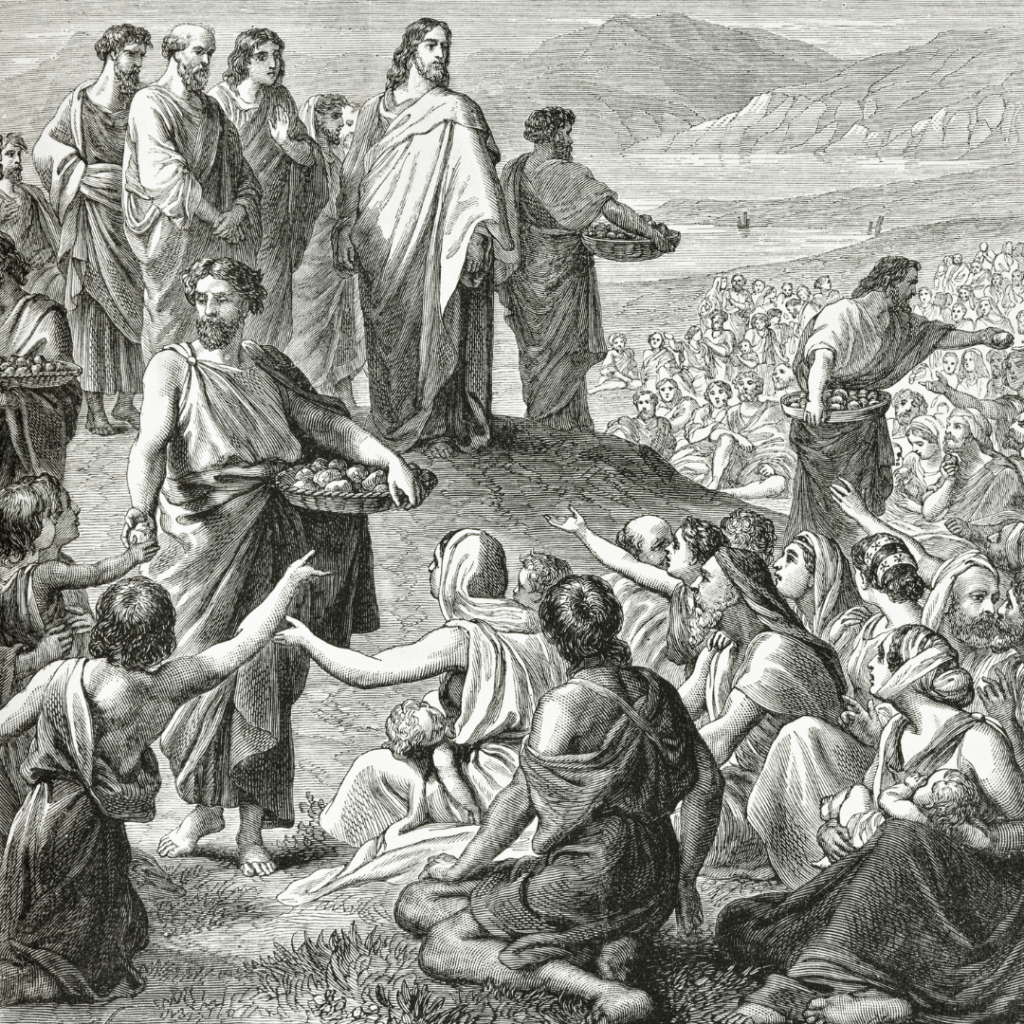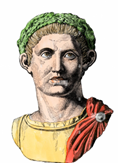The “Great Commoner” sat slightly hunched and visibly red-faced on the witness stand during a hot June day in Dayton, Tennessee. [1] The defense had attempted to discredit the witness in any way possible, seemingly mocking him, not only to the jury, but to the world watching.
“Do you believe that the first woman was Eve?”
“Yes.”
“Do you believe that she was literally made out of Adam’s rib?”
“I do.”
“Did you ever discover where Cain got his wife?”
“No, sir; I leave the agnostics to hunt for her.” [2]
After hours of question and answer of the like, the court called for recess. The next day, the judge expunged the testimony from the record as it did little to help or hinder the defense. The prosecution was victorious, nonetheless. John T. Scopes may have been found guilty of teaching the theory of evolution in public schools, but one of the most famous court decisions of the early 20th century had just begun. Less than four days after the conclusion of the Scopes Monkey Trial, William Jennings Bryan, the “Great Commoner” who had fiercely defended his faith in front of a jury and the world, died during an afternoon nap. [3] His pursuit to defend the idea that man was created in the image of God and not evolved from primate ancestors captured the attention of the world and started the anti-biblical descent of American education. What Bryan knew and Scopes did not is that the Bible is not just a religious document, but a historical document, written by the only One who was present for all of known history. Found within this text are multiple accounts of when earthly authorities either adhere to or reject the sovereignty and moral authority of God, the latter choice resulting in the direct success or failure of that civilization.
The first example of man’s rejection of God’s moral authority is evident throughout the creation account. It begins when the Author confirms the history of man’s beginning, writing:
“Let Us make man in Our image, according to Our likeness.” … and the Lord God caused a deep sleep to fall on Adam, and he slept; and He took one of his ribs and closed up the flesh in its place. Then the rib which the Lord God had taken from the man He made into a woman, and He brought her to the man. And Adam said: “This is now bone of my bones and flesh of my flesh; she shall be called Woman, because she was taken out of man.” (Genesis 2:21-23)
This was immediately followed by the second part of Genesis 1:26 as God gives Adam the Dominion Mandate, saying, “Let them have dominion over the fish of the sea, over the birds of the air, and over the cattle, over all the earth, and over every creeping thing that creeps on the earth.” But it was not until Genesis 3:6-7 that paradise was lost. It was at the exact time that Adam tasted the fruit that this slow saunter away from God’s truth would inevitably lead to man’s pursuit of his own destruction. At no point during man’s fall did God leave His people or change His desire for man’s purpose. It was the choice of man to walk away from God. As humanity continued to fall more into depravity, God saw a need to renew the morality of man through a global flood, saving only Noah and his family.
God’s Providential Hand in History

God’s sovereignty in man’s affairs is further evident in the story of Joseph found in Genesis 39-50. Joseph was sold into slavery, wrongfully accused of crimes he didn’t commit, thrown in prison, and yet redeemed. He was given favor by Pharaoh and used that favor to save God’s chosen people from famine. This story culminates in Genesis 50:20, which states, “But as for you, you meant evil against me; but God meant it for good, in order to bring it about as it is this day, to save many people alive.” And for many years, Israel thrived in Egypt. Eventually there came a pharaoh “who did not know Joseph” (Exodus 1:8). This new earthly authority did not recognize the sovereignty of God, resulting in an Israelite revolution led by Moses as told in the book of Exodus. And with that exodus, destruction fell upon Egypt. In both cases, God’s will is carried out in spite of the earthly authority’s intentions, resulting in either the success or failure of the society.
God Leads His People to the Promised Land and They Soon Turn Away
With the start of a new nation, Israel was faced with the choice to follow the moral authority of God or the world’s perception of righteousness. Throughout the kingships of a united Israel, Saul, David, and Solomon all began by following the precepts of God’s Word. Even though David was a man after God’s own heart and took Israel to its height of power in the ancient world, the dominance of Israel would be short-lived. Later, Solomon was granted wisdom by the Lord (1 Kings 3:9-14), yet he slowly took more and more wives, which allowed worldly theology to take hold among the people of Israel. The split of the nation of Israel divided the people of God and caused them to continue on their path away from God, eventually being turned over to their wicked ways and led away into captivity in Babylon and Assyria. While in captivity, it took the devout practices of Daniel and his associates to turn the earthly authority of Nebuchadnezzar toward the realization of God’s providence and moral authority (Daniel 4:34-37). Israel was released from exile during the reign of Cyrus the Great of Persia (Ezra 1); while the people returned to their homeland, they never regained their true independence until many years later.
When Man Rejects God, Tyranny Ensues

Jump ahead to after the time of Christ, when the earthly authorities were intentional to attack the moral authority of God. During the reigns of the first two Caesars, Julius and Augustus, the goal was to deify the emperor, making this the Roman equivalent of an Egyptian pharaoh, supposedly a direct descendant of the gods. [4] Those who did not acknowledge the kingship of the Roman emperor in all aspects were jailed or, worse, executed. Many times, early Christians were forced to choose citizenship between one of two kingdoms, Rome or heaven. One of the most prominent examples of this was during the reign of the Roman emperor Nero. It was under the thumb of Nero that the largest number of Christians were executed, including the Apostle Paul, who lost his head at Nero’s command in A.D. 64. [5] As Rome continued down this path of self-destruction, continually pursuing man’s own desires and disregarding God’s will, its society crumbled on top of itself, and much like the fate of Israel, it was divided into two: East and West. [6] The Roman West was quick to fall to the Visigoths and Huns, [7] while the East saw a different fate. Under the Eastern Roman emperor Constantine, a new movement was taking place. Constantine had heard the Gospel and converted to believing in the one true God of the Bible. [8] And while Western Rome fell in A.D. 473, [9] this new Byzantine Empire would last for nearly another thousand years [10] and thrive with its foundations rooted in the Orthodox Church.
Tracing History to the Founding of America
The founders of our nation knew their history: A government founded upon the principles of the Bible and an adherence to the biblical standards of society would thrive for far longer than those that would choose to glorify false gods and man’s success. This is most evident with the father of our nation, George Washington, who kept a prayer journal to daily recount the blessings of the Father and His protection over Washington and the nation that he so fervently defended. In his inaugural address to both Houses of Congress on April 30, 1789, he stated: No people can be bound to acknowledge and adore the Invisible Hand which conducts the affairs of men more than the people of the United States. Every step by which they have advanced to the character of an independent nation seems to have been distinguished by some token of providential agency. … We ought to be no less persuaded that the propitious smiles of Heaven can never be expected on a nation that disregards the eternal rules of order and right which Heaven itself has ordained; and since the preservation of the sacred fire of liberty and the destiny of the republican model of government are justly considered as deeply, perhaps finally, staked on the experiment. [11]
These statements fully support our founders’ understanding that man is naturally deprived, lacking a moral compass, and in desperate need of a Savior. It is this understanding that directly ties the American idea of freedom and liberty to a life that is dependent upon the biblical principles of Christian self-government. But when a nation turns its desires to that of glorifying the greatness of man, its destruction is imminent.
When pharoah acknowledged the wisdom of the God of Joseph, Egypt thrived – only to fall when confronted with God’s truth through Moses. Israel thrived under the three united kings, only to be swept back into captivity when their eyes turned to false gods. Rome’s focus on the greatness of itself was ultimately its downfall, until Constantine redirected the eyes of the people to the Truth of the Gospel. Now America faces its own crossroads. Much like John Scopes derided the notion that there was a Creator, modern society has perpetuated the perversion of God’s Word. Without believing the biblical history of man’s descent into moral depravity, the necessity of man’s adherence to the moral authority of God and the need for the work of the Holy Spirit are incomprehensible. Society’s understanding of man’s history will steer the morals of the nation. The Rev. S.W. Foljambe speaks to this idea in his Annual Election Sermon given in Boston, Massachusetts, on January 5, 1876, where he states, “The more thoroughly a nation deals with its history, the more decidedly will it recognize and own an overruling Providence therein, and the more religious a nation will it become; while the more superficially it deals with its history, seeing on secondary causes and human agencies, the more irreligious will it be.” [12]
At Dayspring, we acknowledge the providential hand of God throughout all human history. In teaching this to our students, the hope is that they will see when society’s morals decline and stray from the principles of a biblical worldview, this will lead to that society’s eventual collapse. Students are able to see that when individuals acknowledge the Lordship of Christ in their own lives, then live out biblical principles in their communities, the Truth of the Gospel will spread to the ends of the earth.
Bryce Lehr teaches history and English literature at Dayspring Christian Academy.
____________________________________________________________________________________________
Works Cited
[1] Moran, J. P. (2002). The Scopes Trial: A Brief History with Documents. Bedford/St. Martin.
[2] Ibid.
[3] Ibid.
[4] History.com Editors. “Augustus.” History.Com, 9 Nov. 2009, www.history.com/topics/ancient-rome/emperor-augustus.
[5] Sanders, E.P. “St. Paul the Apostle.” Encyclopædia Britannica, 3 July 2023, www.britannica.com/biography/Saint-Paul-the-Apostle#ref259968.
[6] Mark, Joshua J. “Western Roman Empire.” World History Encyclopedia, 30 Apr. 2023, www.worldhistory.org/Western_Roman_Empire/.
[7] Ibid.
[8] Denova, Rebecca. “Constantine’s Conversion to Christianity.” World History Encyclopedia, 24 Mar. 2023, www.worldhistory.org/article/1737/constantines-conversion-to-christianity/.
[9] Mark, Joshua J. “Western Roman Empire.” World History Encyclopedia, 30 Apr. 2023, www.worldhistory.org/Western_Roman_Empire/.
[10] Nicol, Donald MacGillivrary. “Byzantine Empire.” Encyclopædia Britannica, 3 July 2023, www.britannica.com/place/Byzantine-Empire.
[11] One Nation Under God: George Washington, www.leaderu.com/orgs/cdf/onug/washington.html. Accessed 3 Aug. 2023.
[12] Hall, Verna M. The Christian History of the American Revolution: Consider and Ponder. Foundation for American Christian Education, 1976. Pg. 46.
